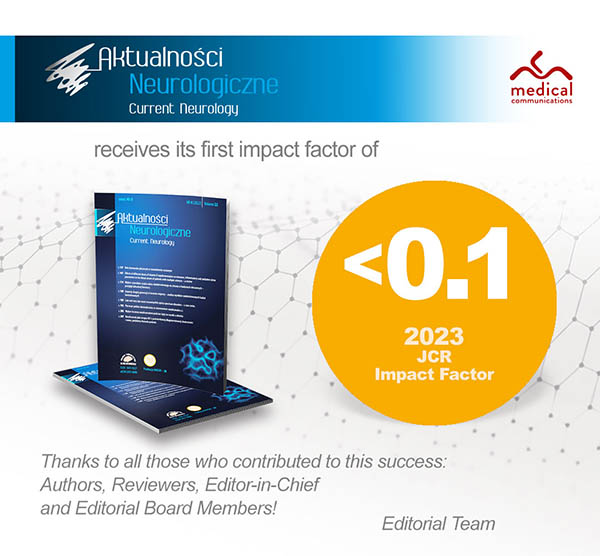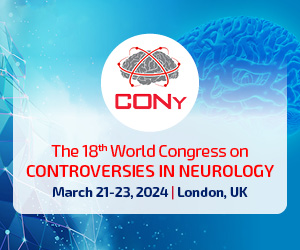The role of selected risk factors in the aetiology and the course of Alzheimer’s disease
 Affiliation and address for correspondence
Affiliation and address for correspondenceAlzheimer’s disease (AD) is the most common form of dementia among elderly. It is a progressive, neurodegenerative disease. Morbidity of AD rises with age. Aetiology of AD is multifactorial and it compounds of genetics and environmental factors including general lifestyles, diet, physical activity smoking and alcohol abuse. It is believed that a diet similar in composition to the Mediterranean diet has a protective effect and promotes a long life in health. Hyperhomocysteinemia and a diet deficient in B12 is indirectly associated with AD. On the other hand, supplementation of vitamins C, E and folate in diet can be protective from AD. Both, obesity and undernutrition, can increase the risk of development of AD. The importance of correlation between vascular disease of the brain and dementia is undeniable. It is supported by the fact that appropriate diet, proper nutritional status, absence of diabetes, avoiding smoking and attention to physical activity play an important role not only in preventing cardiovascular diseases,but also the AD. Epidemiological studies suggest that the incidence of AD will continue to rise along with aging population, which will increase the amount of disable people due to AD impacting medical, cultural and economic aspects of the society. Therefore the role of individual factors should have been investigated still and prophylactic activities must have been introduced in the early age.








